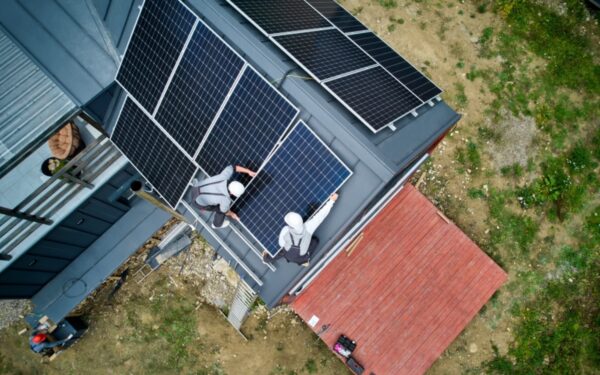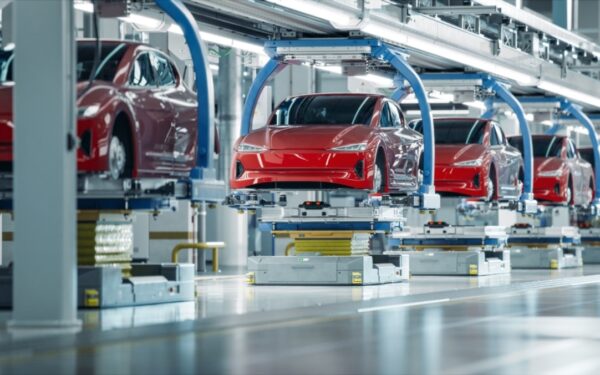Regular readers of Reaction will know all about Pascal’s Wager, but for the newcomers, let’s recap: it’s the idea put forward by the French philosopher about whether you, a supremely rational person, should believe in God, a supremely irrational idea.
As Pascal noted, the obvious choice is: go ahead and believe. After all, what are the choices? If you die and it turns out there isn’t a God in the sense that Pascal understood, then you’ll just experience… nothing. But if there is a God, and you’ve been a dutiful believer, then you might go to Heaven for eternity. That’s a pretty good risk/reward payoff for comparatively few years of earthly inconvenience.
By contrast, if you choose not to believe, and there isn’t a God, death still means lights out, nothing more. But if you don’t believe and there is a God, then it’s off to Hell for you, and the worst payoff imaginable – an eternity of walking around being told by winsome people that you should download the BBC Sounds app to listen to this programme.
I thought of Pascal back in June on reading Andrew Montford of the Global Warming Policy Forum (GWPF) complaining about the mooted economic cost to the UK of ameliorating global heating. (It’s not global “warming” any more. The Earth is getting hotter, faster, and that is having demonstrable effects, as we’ll see.) In the piece, Montford works through a Committee on Climate Change report on how the UK could reduce its carbon emissions to “net zero”. The CCC report is very broad, and builds on lots of other research. One of its key lines is that “net zero [UK carbon emissions] can be met [by] an annual resource cost of up to 1-2% of GDP to 2050, the same cost as the previous expectation for an 80% reduction from 1990 [levels].” (That previous expectation came from the 2008 Climate Change Act, which also targeted 2050.)
As Montford points out, that comes to £50.8bn per year, which over the 30 years adds up to £1.5 trillion, not the £1 trillion that some had been upset about. As he also points out, that spending is additional to everything else; it’s net of savings. I don’t disagree with that. But I do disagree with what he then says: “what seems clear is that we are being told that we are going to be considerably more than £1.5 trillion worse off than if we did nothing at all.”
Well, that depends. What sort of price do you put on not being parched, baked, starving to death or being forced to abandon your home by flooding, and perhaps to walk hundreds of miles to find refuge, maybe in a foreign country? If we reckon there are about 50 million adults in the UK, then that £50-odd bn is about £1,000 per year. Sounds a lot, but have you considered the unpleasant alternative awaiting you and/or your children and relatives? Taking action always sounds expensive, until you consider the costs of doing nothing.
Wait, though. Am I really suggesting that the Thames will wash over London some time in the next few years, and displace all the people there? No, I’m not. But the reality is that we are already seeing the effects of global heating on the world around us, and not doing anything about it is a perverse response to Pascal’s Wager, mixed with another philosophical idea – the Trolley Problem.
Viewers of the US TV series The Good Place will know all about the Trolley Problem. The question goes thus: you’re standing by some train tracks, by a mechanically operated point that can divert a train down either of two branches. You see a runaway trolley approaching. If you don’t touch the points, it will continue down the line and kill five people tied to its rails by evil philosophers. (No time to untie them.) If you switch the points, the trolley will divert – and kill the single person tied to the other branch’s rails by those same evil philosophers.
There are many variants of the Trolley Problem (all the people facing death are known to you, some are known to you, none are, some are good, some are evil, and so on), but they’re all about weighing various degrees of bad outcomes. And not playing is not an option.
In this case, the outcomes we’re faced with are to pretend the climate crisis isn’t real, and save ourselves £51bn per year, and then get walloped by runaway climate change in a timeframe that gets shorter all the time.
Or assume that it is real, and act accordingly, which could be expensive, but could avert the worst effects and would certainly see us prepared for them.
Assuming that it isn’t real is to take the other side of Pascal’s Wager – the one where you decide there’s no God, and take a chance on ending up in Hell for eternity. The odd thing about this situation, though, is that it’s the flipped version of the wager. Denying that the Earth is warming, or that it will affect us seriously, is the faith-based action. Taking the “safe” side of Pascal’s Wager, and behaving as though we live on a dangerously warming Earth, is the rational action, backed up by scientific evidence that piles higher and higher each day.
Some people find a third option in this wager, which is where we get into the Trolley Problem element. They accept that the Earth is warming, and that’s it’s going to have big effects. But, they say, it’s going to affect other people. The runaway trolley of drier, hotter summers and wetter winters and higher sea levels and more frequent crop failure and displaced people and water wars is heading down the line to millions of other people, in Jakarta, Manila, Bangkok, New Orleans and other far-away places. Who wants to volunteer to switch the points and suffer some inconvenience to save other people, even though we might be able to stop or at least slow it if we spend enough? Taking action means things like building more nuclear power stations, dramatically cutting meat consumption, creating incentives for people to use electric-powered transport rather than fossil fuel-powered vehicles, using more renewables, reducing fossil-burning generation. It costs money, and it means changing our behaviour. And people hate doing that.
If we’re honest, most of us are like that. Like the leak in the roof that’s a bit difficult to get to just now while the cricket is on, it’s something we think we’ll fix later. Perhaps when there’s a damp patch on the ceiling. Perhaps when water starts dripping through. Except this is much bigger. This would be a planet where inhabited areas become inhospitable, and forced human displacement and conflict and falling living standards become inevitable.
By default, Montford’s analysis of the CCC recommendations is “do nothing”, though he doesn’t say whether this is because he’s happy to take the fingers-crossed side of this Wager, or because he’s happy to leave the Trolley untouched.
If you’re dubious about the approaching trolley, here’s a simple way to understand it. The science by which greenhouse gases trap infrared energy is settled. It’s why Venus is hellishly hot. It’s why Earth is pleasantly warm rather than freezing. We’ve been pushing carbon dioxide and other greenhouse gases into the atmosphere at an exponentially growing rate over the past 100 years. That means the atmosphere is trapping more energy from the Sun.
However heating the Earth doesn’t lead to uniform warming everywhere, because the Earth isn’t uniform. The more energy there is in the atmosphere, and hence the land and oceans, the more variation you’ll tend to see in the climate, and the weather. That’s why it’s easy to cherry-pick locations and datasets and say “look, it isn’t really getting warmer!” The reality though is that the evidence piles up and piles up. Arctic ice cover has reached record lows. Greenland’s colossal ice sheet (which sits on top of land, and so can only add to sea levels) has melted at a dramatic rate, and that edges sea levels up, often far from where it happens. The GWPF would like you to think everything is hunky dory with the Greenland ice sheet (GrIS). The reality is that the same researchers whom the GWPF quotes approvingly warn that ice aggregation on the GrIS in cold years doesn’t make up for the melt in warm years. In other words, general warming is a one-way process which reduces Greenland’s ice, and the claim that the GrIS is only reverting to its levels of a few hundred years ago is a bit foolish when you consider that we have more people and cities living close to shorelines than a few hundred years ago, and they’re in trouble as a result.
It’s not just Greenland. Glaciers are retreating, and their meltwater runs to the seas too. Species are wiped out, crops fail in areas where they’ve only just hung on, people are displaced by extreme weather events which are made more likely by a warmer atmosphere. Scientists hate to say that “this hurricane was caused by global heating,” because that’s inaccurate; the hurricane is a natural phenomenon caused by the confluence of winds with sea temperatures. What they do say is “these extreme weather conditions were made more likely by global heating” – which is more comprehensible, and makes sense if you understand the climate as an energy system. Put more in, and its contents will rattle about more energetically. It’s like rolling a handful of dice, but adding an extra die every so often: the average number will tend to be higher, even if sometimes you get a number that’s lower than you rolled before.
We can make a difference, though. It takes government subsidies (yes, that means taxes) and measures to make us change our behaviour (how many single-use plastic bags have you acquired lately?). But reducing emissions is possible: the UK has reduced its greenhouse gas emissions by 42% since 1990, according to UK government figures. So we need to do this, and we can do it. Yes, everywhere else needs to do it too; but you have to build the house brick by brick, and every brick helps. Installing solar panels? Eating less or no meat? Cycling more, driving less? All good.
In the face of all this, why would anyone take the downside of the Wager? This is where we come back to the GWPF’s mysterious funding. Would its funders be harmed if people burned less fossil fuel? Do they have big investments in oil reserves? We can’t really know until the GWPF clarifies for the rest of us the interests that drive its Pascalian and Trolley choices. The Earth won’t care if the human race becomes as endangered as the white rhino. But don’t you?
Charles Arthur is a freelance journalist and author who formerly worked at The Independent and The Guardian. He’s on Twitter. He has downloaded the BBC Sounds app.



